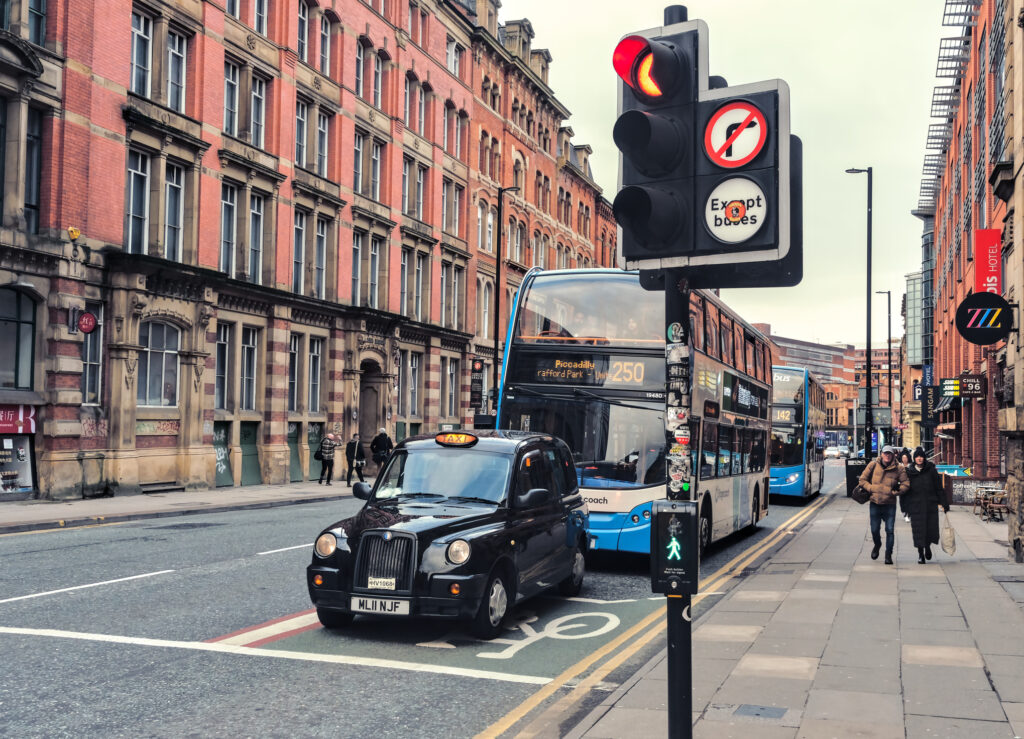More PHVs are being allowed to use bus lanes

Bus lanes are usually reserved for buses, taxis, motorcycles and cyclists, but now more local authorities are allowing PHVs into the lanes to beat traffic.
The idea behind bus lanes is that fewer vehicles, carrying larger numbers of passengers, get through traffic more easily. It also helps promote sustainable modes of transport.
Those against allowing PHVs into bus lanes argue that the more vehicles that use them, the more congested they will become and they will no longer be effective.
Those who ignore the rules face fines and the BBC reported that Manchester City Council collected £10,241,545.13 in penalties from thousands of drivers who illegally used the Oxford Road bus gate over an 18-month period.
PHV trial success
We recently looked at the scheme in Reading where PHV drivers had been allowed to use the King’s Road bus lane going into the town centre, against the one-way system, but not the bus lane coming out of it.
After a two-year battle, the town’s PHV drivers have finally been given permission to use the bus lanes in both directions, avoiding detours around the one-way system.
The Reading Chronicle reports that the council’s traffic management sub-committee unanimously approved the decision, meaning public hire and private hire taxis licensed by Reading can use the lane.
Reading Private Hire Association chairman Kamran Saddiq said: “Our passengers, members of the public, their safety is our utmost, we are trained professional drivers and are always a high priority into consideration when we are travelling on the King’s Road.”
He told the council that out-of-town drivers who do not know the area are incorrectly using bus lanes, while they are strictly observed by Reading drivers.
This was a concern raised by public hire cabbies in the town and the council has set aside £15,000 for signs to make it clear that only Reading-licensed PHVs are allowed to use the bus lanes.
Improving traffic
In a bid to cut congestion and pollution, other towns and cities have also been exploring the option of allowing PHVs into bus lanes.
In Portsmouth, Portsmouth City Council’s 14-month trial involving five designated bus lanes has been hailed a success.
The council allowed Portsmouth-licensed PHVs into five specific bus lanes in a bid to improve punctuality and reliability of their services.
Taxi Point reports that following the trial’s success, there are now calls to make the move permanent, as well as allowing PHVs into other bus lanes in the historic naval city.
Cllr Gerald Vernon-Jackson, Cabinet Member for Transport, told the council: “Private hire vehicles provide essential transport in the city especially for those travelling in groups or for those that can’t catch the bus, walk or cycle. Developing and improving the reliability of public transport is essential for our residents and businesses in Portsmouth whilst also ensuring the safety of road users when making changes in the city. I look forward to considering the recommendations.”
Different considerations
The decision to allow PHVs to use bus lanes has to be taken by each local authority because there are so many factors to consider. And, while it might work for certain bus lanes in a town or city, it might not work in others.
The Portsmouth trial was judged a success after data showed travel times slightly improved for buses, coaches, taxis and cyclists, which allowed the council to consider adding PHVs. The city council is now considering 14 other bus routes where trials could be carried out. It may work for some or none at all.
This is why the decision has to be taken locally, after listening to all parties involved, including taxi drivers, bus drivers, cyclists and PHV drivers.






